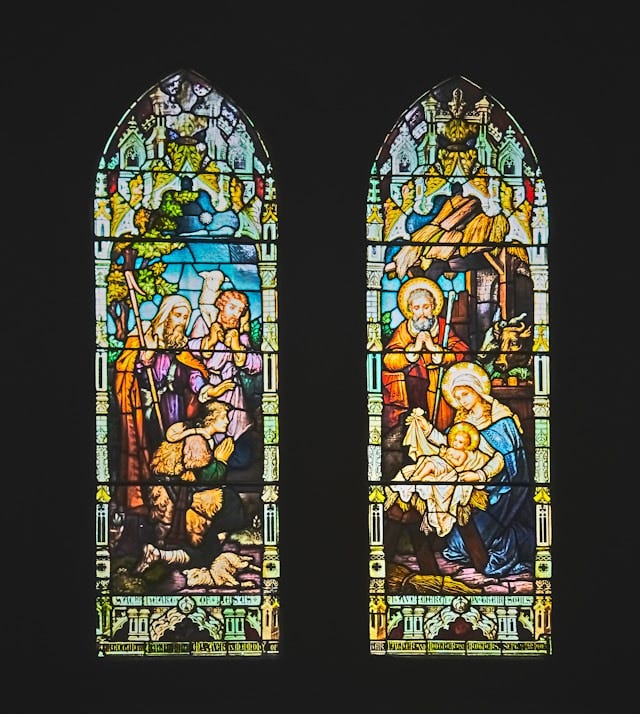The Word Made Flesh
4/3/25 Bible Thought (John 1)

Probably most people in the world are at least a tiny bit familiar with Genesis 1 and the concept of creation. I’m sure all of us know that God “spoke” things into existence in the beginning.
Yet, John shows us in the prologue of his Gospel account what many probably don’t know. This spoken word wasn’t just an inanimate thing but was actually living. The Word is introduced in John 1:1 as both being God and being with God. In verse one alone, John so concisely shows us the idea of a triune God. Both the Word and God Himself are God—yet there’s also a sense of uniqueness as the Word is with God.
This Word is the Father’s agent in creation. Everything that we see and know has come about. It had a starting date. It had an origin. It had a day that it began to exist.
Every tree outside had a day it was a seedling. Every animal species had a date of origin in the creative work of God. Not so with the Word, He just was. Even before creation itself, He was there in the very beginning.
He didn’t become God and likewise He never ceased to be God. From the first cry as a newborn cradled in a manger until he cried out on the cross, “It is finished” He was divine. He didn’t become God at baptism, at the transfiguration, at His resurrection, or at any other crucial event.
In Him was the very source of life itself and this life became the animating force of all humankind. It was God who breathed into mankind the breath of life and took us from being empty shells to living beings (see Gen. 1:7). This credit is now given to the Word.
Then John says, this eternal Word took on flesh:
“And the Word became flesh and dwelt among us, and we have seen his glory, glory as of the only Son from the Father, full of grace and truth” (Jn. 1:14).
At the outset of Jesus’ ministry, John wants us to know who Jesus is. He isn’t the illegitimate son of a poor Jewish girl. He isn’t just some good moral teacher. He isn’t just another in the line of the prophets. He is Himself divine. As Jesus would later confess, “before Abraham was, I Am” (Jn. 8:58, emphasis added; see also Ex. 3:14).
The Creator became creature. The One in the form of God, took on the form of a slave (see Phil. 2:6-7). The One who enjoyed the bliss of heaven from the dawn of heaven’s creation leaves it all behind, emptying Himself.
Why?
Why would He do this?
Well, John the Baptist actually gives us the answer a bit later in this chapter when he cries out, “Behold, the Lamb of God, who takes away the sin of the world!” (Jn. 1:29).
On account of love, He came down to give His life for sinners (see Jn. 3:16; Rom. 5:8).
The one who, “upholds the universe by the word of his power” (Heb. 1:3), the one whom in whom, “all things hold together” (Col. 1:17), He came down—for us.
If you ever doubt the love of God for you, just remember that He didn’t have to come. He knew what He was getting into. It wasn’t happenstance or an accident. He came purposefully. He came according to plan at the fullness of time (Gal. 4:4). He came to save us.
Dottie Rambo once wrote a hymn entitled, “If that isn’t love” and it goes like this:
He Left The Splendor Of Heaven,
Knowing His Destiny.
Was the Lonely Hill Of Golgotha,
Where He Laid Down His Life For Me.If That Isn’t Love, The Ocean Is Dry.
There’s No Stars In The Sky, And The Sparrow Can’t Fly.
If That Isn’t Love, Then Heavens’ A Myth.
There’s No Feeling Like Death, If That Isn’t Love.

